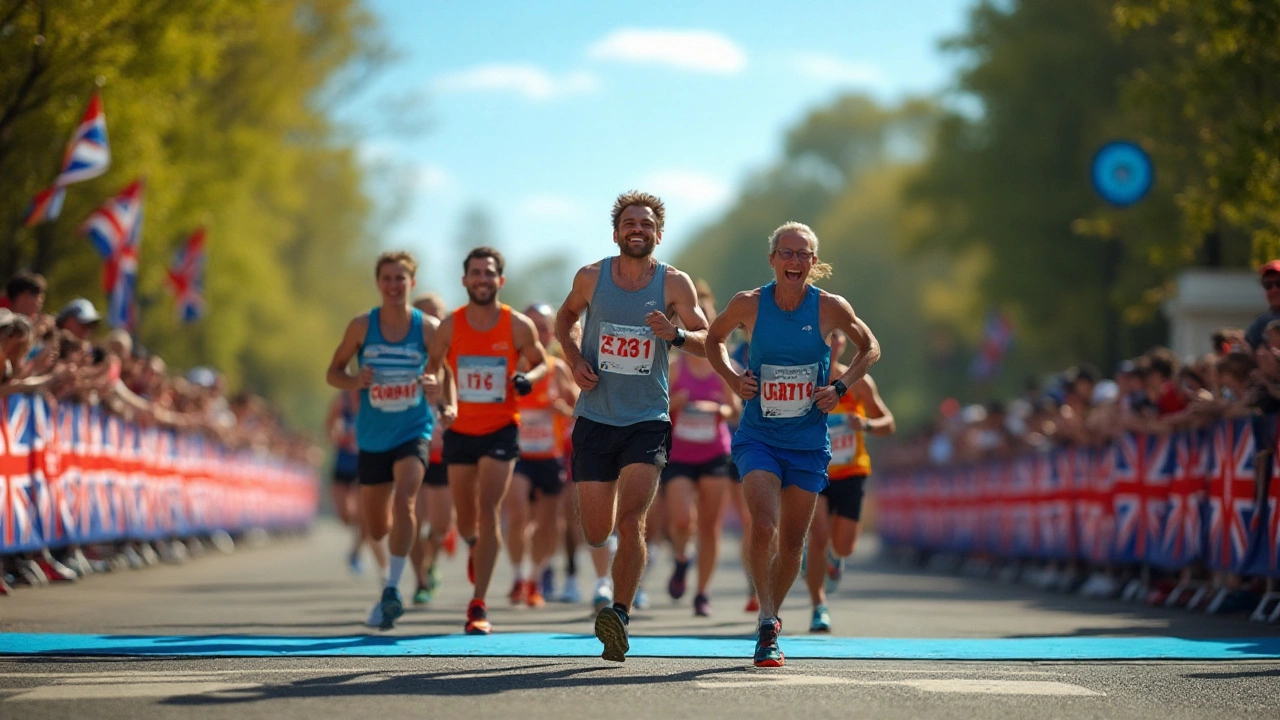Explore what a 3 hour marathon entails, who can achieve it, and how to train, fuel, and race to hit that realistic three‑hour target.
Marathon Training: Your Practical Guide to Getting Ready
Thinking about tackling a marathon but not sure where to start? You don’t need a fancy coach or a million‑hour plan. Below you’ll find a straight‑forward roadmap that fits most beginners and intermediate runners. Follow these steps, adjust to your life, and you’ll be crossing the finish line with confidence.
Build a Weekly Training Schedule
First, decide how many days you can realistically run each week. Most people manage three to five days without burning out. A solid starter plan looks like this:
- Monday: Easy run – 3‑4 miles at a comfortable pace. This helps shake off any stiffness from the weekend.
- Wednesday: Speed work – 4‑6 miles with intervals (e.g., 400 m fast, 400 m easy). Intervals boost your VO₂ max and make race‑day pace feel easier.
- Friday: Tempo run – 5‑7 miles at a “comfortably hard” effort, about 80% of your max heart rate. This trains your body to hold a steady, faster pace.
- Saturday or Sunday: Long run – start at 6‑8 miles and add a mile each week, peaking around 20 miles three weeks before the race. Keep the pace slow; the goal is endurance, not speed.
If you can fit an extra day, use it for a short recovery jog or cross‑training (cycling, swimming). The key is consistency, not perfection. Mark each run on a calendar and treat it like an appointment you can’t miss.
Stay Healthy and Avoid Injuries
All the miles in the world won’t help if you’re sidelined by a sore knee. Here’s how to stay injury‑free:
- Warm up and cool down: Spend five minutes walking or light jogging before every run, then stretch the major muscle groups afterward. Simple dynamic moves (leg swings, high knees) prime your muscles.
- Strength work: Two short sessions a week of core and leg exercises—planks, squats, lunges—improve stability and reduce the strain on joints.
- Listen to your body: A sharp ache that doesn’t fade after a day of rest is a warning sign. Reduce mileage, ice the area, and consider seeing a physiotherapist before the problem worsens.
- Fuel right: Eat carbs before long runs, and carry a small snack (like a banana or energy gel) for runs over 90 minutes. Hydration matters too—sip water regularly, and add electrolytes on hot days.
Sleep is your secret weapon. Aim for 7‑9 hours a night; your muscles rebuild while you’re asleep. If you’re feeling unusually tired, take a rest day rather than pushing through.
Finally, practice race‑day logistics. Try the shoes, clothing, and nutrition you plan to use on a few long runs. Knowing how your gear feels eliminates surprises when the big day arrives.
Marathon training is a marathon of its own—steady, patient, and rewarding. Stick to a realistic schedule, safeguard your body, and keep a positive mindset. You’ll find the miles become easier, the finish line closer, and the whole experience far more enjoyable. Ready to lace up and start? Your journey begins with the first step you take today.
Wondering how many 20-mile runs you should tackle before your marathon? This article breaks down why 20 milers matter in marathon training, how many you really need, and what the science and pro runners say. You’ll get practical tips about fitting long runs into your schedule and staying strong till race day. We’ll cut through myths and give you advice you can actually use.
Thinking of transitioning from a 10K to a half marathon? It's not as daunting as it seems. While a 10K is a solid distance, a half marathon requires some extra preparation and training. With the right plan and mindset, you can smoothly make the leap from 10K to 21K.
Running a marathon is a daunting yet exhilarating feat, with many factors influencing whether a runner crosses the finish line. This article examines the percentage of marathoners who complete the race, offering insights into various influencing factors. We dive into strategies and preparations that aid in increasing completion rates. Discover the inspiring stories behind marathon finishes and gain practical tips to boost your odds of crossing the finish line. Join us in exploring the world of marathons, where each mile tells a story.
Running a 10K in 70 minutes is a milestone for many recreational runners. It indicates a solid level of fitness and dedication to training. This article explores how this time compares to various benchmarks, the factors that impact running speed, and techniques to improve performance. Whether you are new to running or experienced, these insights can guide your next steps in marathon training.




